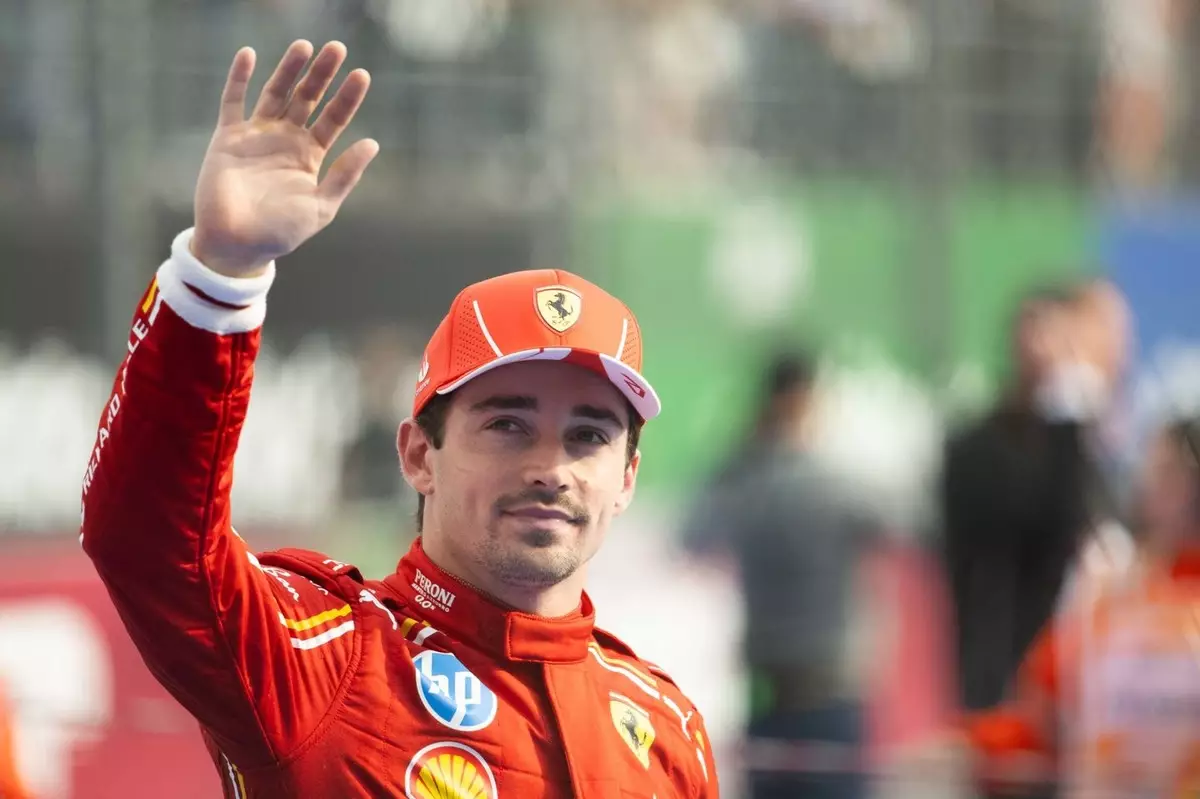In recent years, motorsport, particularly Formula 1, has not only captivated fans with adrenaline-fueled competition but has also become a stage where the actions and words of drivers are scrutinized more than ever. The latest focal point of this scrutiny is a recent incident involving Ferrari’s Charles Leclerc during the press conference following the Mexico Grand Prix. Following in the footsteps of Red Bull Racing’s Max Verstappen, who faced repercussions for his colorful language ahead of the Singapore GP, Leclerc’s comments have revived discussions about the FIA’s (Fédération Internationale de l’Automobile) tolerance for unfiltered expression among drivers.
Both incidents highlight a burgeoning initiative from the FIA aimed at curbing inappropriate language that, according to officials, may undermine the image of the sport and its governing bodies. The governing body is under increasing pressure to maintain a professional atmosphere during press events, as more and more fans—and the media—bear witness to the raw vulnerabilities of the sport’s superstars.
Leclerc’s comments were made in response to a question regarding his near-miss with disaster at the Mexico City race, where he narrowly avoided crashing after experiencing significant oversteer. His unfiltered, spontaneous response—an exclamation of frustration that included the word “f**k”—has been flagged for review under Article 12.2.1k of the FIA’s International Sporting Code. This section addresses any statements that could be construed as morally injurious to the FIA or undermine the sport’s integrity.
In the wake of the incident, Leclerc did what many would deem necessary, issuing multiple apologies and expressing understanding towards the FIA’s deliberations. This reaction starkly contrasted with Verstappen’s earlier stance, as the Dutchman opted to withdraw from FIA press conferences altogether after his own incident, setting a different precedent for handling backlash.
The FIA’s stance on driver language can be perceived as a thinly veiled attempt to impose boundaries that may limit free expression. On one hand, it is essential to maintain decorum in competitive sports; on the other, this initiative raises deeper questions about authenticity and freedom of speech within the context of such a high-stakes environment. When drivers are placed into a media spotlight post-race, they are often still processing their emotions. Expecting them to maintain a polished demeanor at all times may not resonate well with their fans, especially those who admire the sport for its raw, human moments.
Critics argue that the FIA should focus on broader issues within the sport, such as equality, safety, and sustainability, rather than micromanaging drivers’ responses to high-pressure situations. Following the FIA president Mohammed Ben Sulayem’s remarks, many aficionados of the sport have perceived this crackdown on language as an overreach that might stifle the drivers’ authentic personas.
As discussions unfold regarding potential consequences for Leclerc, the implications are manifold. The decision to investigate the incident could result in an implicit change in how emotions are expressed in this competitive environment. Should Leclerc face punishment, it might send a turbulent message: one that suggests individuality and genuine reactions have no place in this highly polished world of sports.
Furthermore, it poses risks for sponsorship and fan engagement. As drivers continue to be subjected to the strict scrutiny of their public personas, the sport might inadvertently propagate a culture of sanitized communication, possibly alienating fans who crave genuine interactions from their sporting heroes.
In a world that increasingly values both personal authenticity and accountability, the FIA’s ongoing monitoring of driver language reflects a broader cultural dilemma faced within sports and entertainment. While the intention may be to protect the integrity of the institution, the fallout could lead to stifled voices within a sport that thrives on the richness of its characters. As the FIA grapples with this nuanced challenge, one can only hope that the balance between discipline and freedom of expression is navigated with a thoughtful approach that honors both the sport’s legacy and its growing fanbase.

